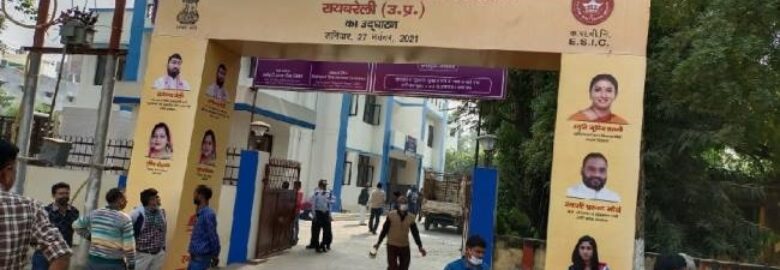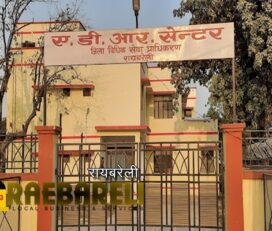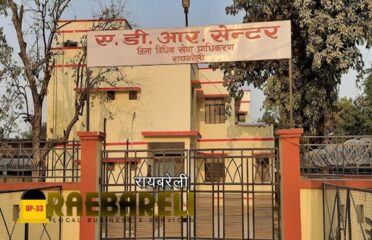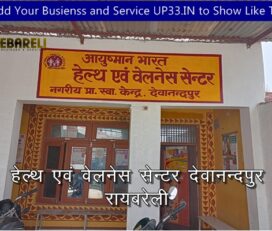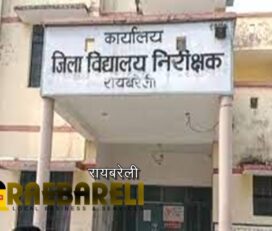
ESIC Dispensary and Branch Office Raebareli
The promulgation of Employees’ State Insurance Act, 1948(ESI Act), by the Parliament was the first major legislation on social Security for workers in independent India. It was a time when the industry was still in a nascent stage and the country was heavily dependent on an assortment of imported goods from the developed or fast developing countries. The deployment of manpower in manufacturing processes was limited to a few select industries such as jute, textile, chemicals etc. The legislation on creation and development of a fool proof multi-dimensional Social Security system, when the country’s economy was in a very fledgling state was obviously a remarkable gesture towards the socio economic amelioration of a workface though limited in number and geographic distribution. India, notwithstanding, thus, took the lead in providing organized social protection to the working class through statutory provisions.
The ESI Act 1948, encompasses certain health related eventualities that the workers are generally exposed to; such as sickness, maternity, temporary or permanent disablement, Occupational disease or death due to employment injury, resulting in loss of wages or earning capacity-total or partial. Social security provision made in the Act to counterbalance or negate the resulting physical or financial distress in such contingencies, are thus, aimed at upholding human dignity in times of crises through protection from deprivation, destitution and social degradation while enabling the society the retention and continuity of a socially useful and productive manpower.
Voip N-
| 60535001 60535003 |
Information-Benefits
The section 46 of the Act envisages following six social security benefits :-
(a) Medical Benefit : Full medical care is provided to an Insured person and his family members from the day he enters insurable employment. There is no ceiling on expenditure on the treatment of an Insured Person or his family member. Medical care is also provided to retired and permanently disabled insured persons and their spouses on payment of a token annual premium of Rs.120/- .
(b) Sickness Benefit(SB) : Sickness Benefit in the form of cash compensation at the rate of 70 per cent of wages is payable to insured workers during the periods of certified sickness for a maximum of 91 days in a year. In order to qualify for sickness benefit the Insured Person is required to contribute for 78 days in a contribution period of 6 months.
1. Extended Sickness Benefit(ESB) : SB extendable upto two years in the case of 34 malignant and long-term diseases at an enhanced rate of 80 per cent of wages.
2. Enhanced Sickness Benefit : Enhanced Sickness Benefit equal to full wage is payable to insured persons undergoing sterilization for family planning upto 7 days/14 days for Vasectomy and Tubectomy respectively.
(c) Maternity Benefit (MB) : Maternity Benefit for confinement/pregnancy is payable for Twenty Six (26) weeks, which is extendable by further one month on medical advice at the rate of full wage subject to contribution for 70 days in the preceding Two Contribution Periods.
(d) Disablement Benefit
- Temporary disablement benefit (TDB) : From day one of entering insurable employment & irrespective of having paid any contribution in case of employment injury. Temporary Disablement Benefit at the rate of 90% of wage is payable so long as disability continues.
- Permanent disablement benefit (PDB) : The benefit is paid at the rate of 90% of wage in the form of monthly payment depending upon the extent of loss of earning capacity as certified by a Medical Board
(e) Dependants Benefit(DB) : DB paid at the rate of 90% of wage in the form of monthly payment to the dependants of a deceased Insured person in cases where death occurs due to employment injury or occupational hazards.
(f) Other Benefits :
- Funeral Expenses : An amount of Rs.15,000/- is payable to the dependents or to the person who performs last rites from day one of entering insurable employment.
- Confinement Expenses : An Insured Women or an I.P.in respect of his wife in case confinement occurs at a place where necessary medical facilities under ESI Scheme are not available.


